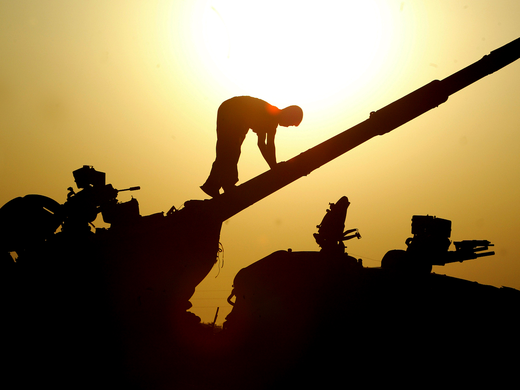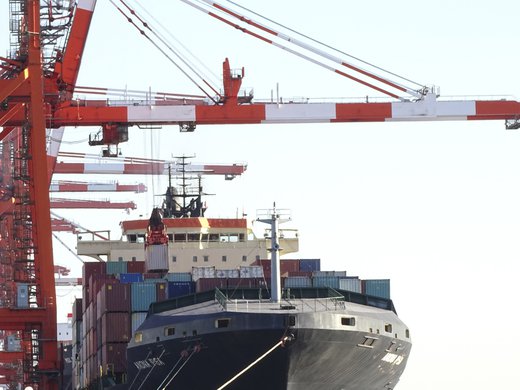According to Oxford historian Peter Frankopan, we are witnessing the unravelling of the global order. In a period of history marked by a Western financial crisis, a global coronavirus pandemic, war in Europe, rising government debt and political instability across advanced democracies, the Western era is winding down. Indeed, the global order has been steadily moving toward a “post-American World” or “post-Western World” for some time. At the heart of this shift is the rise of China and the emergence of a multipolar system.
While we have grown used to thinking of globalization in terms of liberal democracy and Western-led multilateralism, globalization within a multipolar order will increasingly favour regional autonomy and a struggle to define a new balance of power. Taken together, China, India, Russia, Turkey, Iran, Indonesia, Saudi Arabia and Brazil are becoming regional powers within a loosely coupled global system.
What is clear is that we are living through an interregnum — a period in history that bridges a fading industrial era dominated by Western countries and a new digital era underwritten by the rise of China and a vast Asian trading system. Since the end of the Second World War, American predominance has depended on a network of alliances overseen by a sprawling US military. But, as American researchers Alexander Cooley and Daniel Nexon explain, the world is exiting US hegemony. As the US-led order winds down, Western influence over the global system will wane.
Competitive Multilateralism
Rapid shifts in the distribution of power have transformed the global system from the bipolar order of the Cold War (1945 to 1989) to the unipolar order of “American empire” (1989 to 2008) to the current multipolar order typified by the rise of China. Deepening ties between China and other emerging economies and the rise of Asia as the centre of world trade are reshaping the global balance of power. As Asia returns to the patterns of commerce and cultural exchange that thrived before the “age of exploration,” a new period of history is taking shape.
In the decades ahead, frontier technologies including artificial intelligence, robotics, quantum computing, 6G (sixth-generation) telecommunications, genetic engineering, renewables and nanotechnology will be the basic building blocks of a competitive multipolar order. This future includes a return to hard-power diplomacy and the competition for resources. Together, China’s increasing dominance over the world’s supply chains and Russia’s regional ambitions mark a new period of “competitive multilateralism.”
Where many Western countries cling to the post-1945 Bretton Woods system, China’s government is reimagining the world as a single complex network of supply chains and trade arteries. Fuelled by commodities from around the world, China is now the keystone of the global economy and the principal engine of globalization. As the country’s immense state-led production capacity continues to focus on frontier technologies, its power to displace the United States as the world’s centre of gravity will grow. Indeed, leveraging this “geotechnological” shift is China’s grand strategy.
A New Modus Vivendi Is Needed
In the United States, competition with China in the pursuit of US primacy has become the main driver of national policy. Politically, this includes a desire to remain the world’s police, using its enormous military to manage conflict. Economically, this includes a desire to remain the world’s largest market, underwriting globalization. Culturally, this includes a desire to remain at the centre of ideas, driving the world’s imagination, values and cultural exchange. None of this seems likely going forward.
Across emerging economies, Chinese-led globalization has already begun displacing America’s “rules-based order.” This is reflected in the rise of multilateral institutions such as the Regional Comprehensive Economic Partnership, the Asian Infrastructure Investment Bank, the Shanghai Cooperation Organisation, the Eurasian Economic Union, the Comprehensive and Progressive Agreement for Trans-Pacific Partnership, and the New Development Bank of Brazil, Russia, India, China and South Africa (BRICS). As it leverages this system of multilateral institutions, China will grow its sphere of influence, tipping the balance of power in its favour.
In addition to political disruption, climate events have begun accelerating changes in global demography. According to American geographer Parag Khanna, climate disasters are set to drive millions of refugees across the Indian subcontinent, Southeast Asia, Central Africa, West Asia and Central America to seek life elsewhere. Aging and underpopulated northern regions across Canada, Scandinavia and Russia will invariably become destinations for large populations escaping drought, flooding and wildfire.
Navigating this new multipolar system will be daunting. Over the past century, multilateral institutions such as the United Nations, the World Trade Organization and the World Bank have served as pillars of Western-led globalization. But the growing weight of emerging economies now requires proper representation. Reforming the UN system to reflect these changes will be critical to maintaining global stability.
All of which suggests the need for a new generation of multilateral coordination. In the West, multilateralism is often equated with defending the “liberal international order” — a term coined by international relations scholar John Ikenberry in the 1990s. But in the face of economic, technological and ecological disruption, multilateral governance will increasingly be shaped by competing interests. It’s clear that a Western monopoly on leadership is no longer possible. As geopolitical rivalry fuels regional competition, multilateral cooperation will become increasingly precarious. A new modus vivendi is needed.



